Cathy Travers has risen to become global managing director of the largest engineering firm in the UK. In her first interview, she discusses her confidence about Mott MacDonald’s rapid growth, the need for an infrastructure strategy and her plans to improve equality, diversity and inclusion

Cathy Travers is explaining how she was the youngest of five children, with four older brothers, and how this has equipped her for a career in the construction industry.
“I’m not afraid to stand my ground and express my opinion,” she says. “I started my career 36 years ago and there were very few females that worked in the business … that grounding, the rough and tumble with four older brothers, has helped me to do that.”
She may have been the most junior member of her family but these days Travers is very much a senior figure in construction.
In August 2022 she took over as global managing director at Mott MacDonald, the £2bn-turnover engineering giant that topped Building’s Top 150 Consultants list last year, with UK fee income totalling more than £1.1bn.
We catch up with Travers at Mott MacDonald’s headquarters in the heart of the City of London to talk about her plans for the firm.
In numbers: Mott MacDonald
£2.4bn turnover in 2023*
12.3% annual turnover growth in 2021/22
15.8% annual turnover growth in 2022/23*
£109m operating profit in 2022
£115m profit on ordinary activities before taxation in 2022
20,000 approximate number of employees**
£1.1bn fee income in the UK in 2022/23**
Source: Mott MacDonald Group Limited accounts for the year to 31 December 2022 unless stated otherwise
*not yet published in accounts
**according to Building’s Top 150 Consultants 2023
Even before our conversation it is clear that Mott MacDonald is on a growth push. It increased its turnover by 15.8% in 2023 and has recently committed to a further 20,000sq ft of office space in its 10 Fleet Place headquarters.
And Travers, speaking in her blended Lancashire and Yorkshire accent, having lived in both Blackburn and Sheffield, is bullish about future prospects. She thinks Mott MacDonald will achieve organic growth of 15% to 20% annually over the next few years.
Confident about growth
“I feel really confident that we can do that… the market’s there for us to do that. And I’m confident in our ability to win and deliver great work in our chosen markets,” she says.
She predicts that the £452m Americas arm of the business will probably see even higher percentage growth of around 20% to 25%, albeit from a lower base.
So what are these “chosen markets” for her firm?
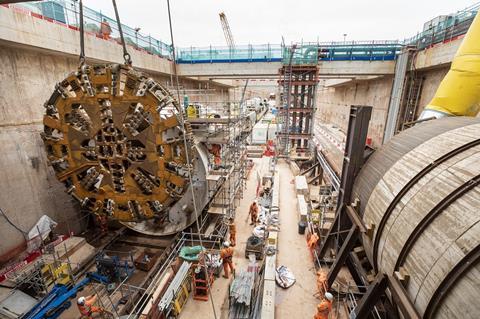
Travers points to transport, buildings, water and energy as areas in which the firm is looking to grow globally. Mott MacDonald is prominent in the UK defence industry and in Australia and US too, as a result of the AUKUS partnership between the three nations. Saudia Arabian giga projects and Canadian transport schemes are also areas of growth for the company.
Taking transport first, Mott MacDonald has been working on HS2 phase 1, including for Balfour Beatty and Vinci on a design and build contract. It has also been working on the royal assent for HS2 2b, which is being repurposed as Northern Powerhouse Rail between Crewe and Manchester. This is in addition to work on the Lower Thames Crossing tunnel and approaches and its highways programmes.
When asked about the biggest challenges that Mott MacDonald is facing, she mentions the “volatility” in the UK and Australian transport markets. Does she mean uncertainty around public funding? Travers says “yes”.
Infrastructure investment
When it comes to the government’s decision to scrap HS2 phase 2a and other cuts, however, Travers appears sympathetic to ministers – up to a point.
“HS2 is a once-in-a-generation project with the scale of investment that has gone into it, but the government dealt with some really serious impacts from Covid which inevitably led to reduced funding and we’ve been in a relatively low-growth economy,” she says.
Turnover by region and activity
| Turnover by global region | |
|---|---|
| UK & Europe | £1.06bn |
| Americas | £452.3m |
| Australia and NZ | £236.7m |
| Middle East & Africa | £156.8m |
| Asia | £142.9m |
| Total | £2.05bn |
She is a firm believer in investing in infrastructure to boost economic growth, however, but believes the government should do more to attract private investment to enable this.
“You’ve got to have an ambitious strategy for where we are going as a country, and you’ve got to back that up with certainty of a pipeline of projects to attract the investment,” she says. “In order for companies like ourselves to make the investments, we need to know what is coming in the future.”
Similarly, while Travers says it is “great” that the government is thinking about small modular reactors (SMRs) to expand the UK’s nuclear power, this “has to be part of a really ambitious, wider strategy to drive towards net zero” if firms are to invest.
Mott MacDonald certainly wants to place itself at the forefront of the UK’s SMR programme and drive towards energy security. In March it signed a memorandum of understanding with manufacturer Holtec Britain and Hyundai Engineering and Construction to look at the possible delivery of SMR technology in the UK.
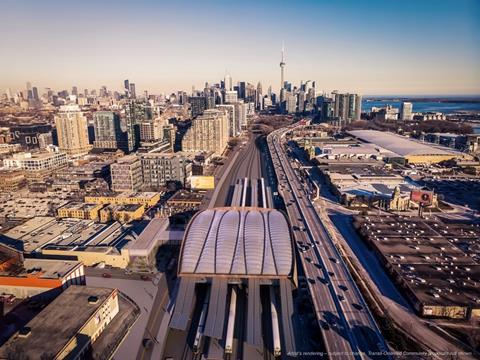
The New Hospital Programme
Another key area for the firm is hospitals. Mott MacDonald is acting as the interim delivery partner on the £20bn New Hospitals Programme.
Travers becomes noticeably excited when talking about the programme, which has included working on the standardised concepts and designs for use on 16 new hospitals.
Talking more quickly, with evident enthusiasm, she says: “We’ve been giving the strategic advice on how we can deploy modern methods of construction (MMC) and design for manufacturer and assembly (DFMA) across a whole programme.This is a fantastic opportunity for us as a country to really start to push the boundaries.
“We are looking at creating standardised designs for hospitals that can be bespoked by each trust to suit their specific site requirements, and then moving on to a kit of parts we can develop.”
This involves engaging with the whole supply chain to push the boundaries on what can be done around DFMA as an industry.
“How can we use that to drive a more industrialised approach across the UK, not just for health but for other sectors?” she asks, with a smile.
The point about supply chain engagement is “essential” for this to work, she says.
We are looking at creating standardised designs for hospitals that can be bespoked by each trust to suit their specific site requirements
“One of the challenges we’ve had in this country, and in many countries, is the rush to get into construction,” she says.
“The decisions that drive high productivity and best value come from the thinking that gets put in up front. I think [on the NHP] we’ve put some really innovative thinking in there and I hope it drives a shift in how as an industry we plan and develop major projects.”
This clever thinking could involve looking at examples of high productivity abroad (Travers talks about looking at giga projects in Saudi Arabia for inspiration) or using digital twins on the NHP – not only of the physical assets but on the care side as well to ensure a “holistic view”.
But how will this revolution be embedded? What can the next government do to remove barriers to make it happen?
Travers has two suggestions. The first is often heard, namely to streamline the planning system and reduce the “complicated accountability spread across multiple stakeholders”.
The second is perhaps less often repeated: “I’d love to see somebody who is a cabinet minister responsible for infrastructure.
“I’d like to see that person have a cabinet committee that brings together the relevant departments so that we get more joined-up thinking – infrastructure is so vital for economic growth.”
This idea echoes a key finding from the Building the Future Commission report. Building’s year-long inquiry into improving the built environment recommended the return of a construction adviser to government, albeit with a wider focus.
Building an inclusive culture
Travers clearly has views on ways the wider operating environment for the built environment can be improved by the next government, but she gives the impression that she is equally, if not more, focused on improving the culture for Mott MacDonald’s 20,000-strong global workforce.
The firm’s churn rate – the percentage of staff leaving the company – has fallen to “industry-leading levels” after previously rising due to the aforementioned volatility in markets such as transport. Its voluntary turnover rate is now at 10%, which a spokesperson said is bottom quartile among Mott MacDonald’s peers.
At the centre of her thinking is improving equality, diversity and inclusivity. Travers says Mott MacDonald has an almost 50:50 gender split (46% female) for staff in the first three years of their career, although there are challenges around how the talent is brought through to the top.
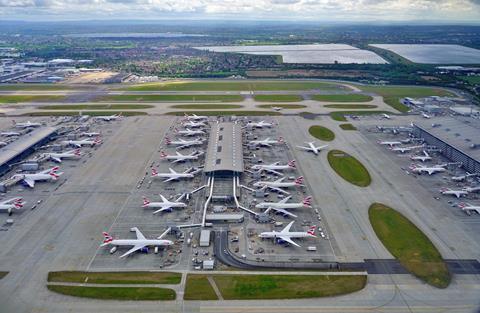
She cautions against using gender, for example, as a “proxy for diversity”, however. She says diversity is really about “different opinions, views and styles” and “giving people space and time to have their views aired”.
Mott MacDonald has been focused on inclusivity. “How do you create an environment in which people feel they can come to work and be themselves?” she asks. As part of this, the company runs sessions with staff of all levels discussing and roleplaying workplace dilemmas.
“Then as a team we talk about it, what they might do in that situation. I think it’s a really great practical way of people understanding that sometimes things aren’t black and white,” she says.
Digital transformation
Mott MacDonald has recently changed its digital operating model to make it ”even more agile”, Travers says.
It launched a new digital portal last year, which provides local teams “access to best-in-company digital knowledge and expertise, processes, tools and technical support”.
It has also developed a solution called Smart Invest to provide clients with ways to manage and make sense of asset data, including modelling of depreciation.
The firm has been using artificial intelligence through machine learning for several years but has recently added new functionality allowing it to monitor stakeholder sentiment across potentially tens of thousands of correspondences on large infrastructure planning projects.
Travers has a strong interest in and affection for the workplace culture at Mott MacDonald. This may not be surprising for somebody who has spent almost her entire 36-year career at the company.
After graduating from the University of Sheffield, she started at Sheffield engineering firm Husband & Company shortly before its acquisition by Mott MacDonald. Charles Husband worked with Bernard Lovell on the design of the Jodrell Bank telescope and the bridge used in the film version of The Bridge Over the River Kwai.
Travers cites the “collaborative” culture of Mott MacDonald and its investment in people as the reasons why she has stayed. She puts huge importance on the company’s approach to mental wellbeing – and for very personal reasons too.
I found getting outdoors, walking or running really helped with my mental wellbeing going through that time – I’m a big advocate of being outdoors, getting exercise. It builds good resilience for what can sometimes be quite stressful jobs
A few years ago she successfully battled cancer and, during her treatment, she realised that outdoor pursuits were most beneficial to her mental health. “I found getting outdoors, walking or running really helped with my mental wellbeing going through that time,” she says.
“I’m a big advocate of being outdoors, getting exercise. It builds good resilience for what can sometimes be quite stressful jobs.”
Each weekend she goes home to the Derbyshire dales. Her hobbies include fell running and gardening among otherr outdoor pursuits.
“I really like going out in green space and digging holes, for some really odd reason. I enjoy that, it’s a sort of slightly mindless, physical activity that I like.”
Whether standing her ground with her four older brothers, rising to the top of a £2bn-turnover company or successfully coping with cancer treatment, Travers is an undeniably impressive leader. Whether Mott MacDonald’s growth trajectory is similarly as impressive as she expects only remains to be seen.
Top 150 Consultants
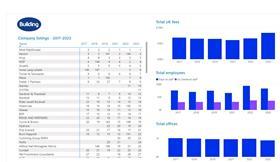
Building’s new interactive Top 150 Consultants page allows you to access key information from our rankings dating back to 2017.
The page provides trend analysis and a detailed breakdowns on the list – in particular:
- A summary of overall fee-level, staff numbers and overview of where companies have featured in the list in the last six years
- Search all of the companies on the list in the last seven years with breakdowns of fees, staff and number of offices for every year
- Analysis of fee turnover of the top 10 companies in the list compared to the rest
- Detailed breakdown and visualisation of changes in fees per chartered staff, annual fees per chartered staff and total staff compared to chartered staff






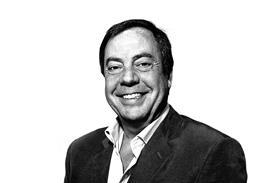




















No comments yet